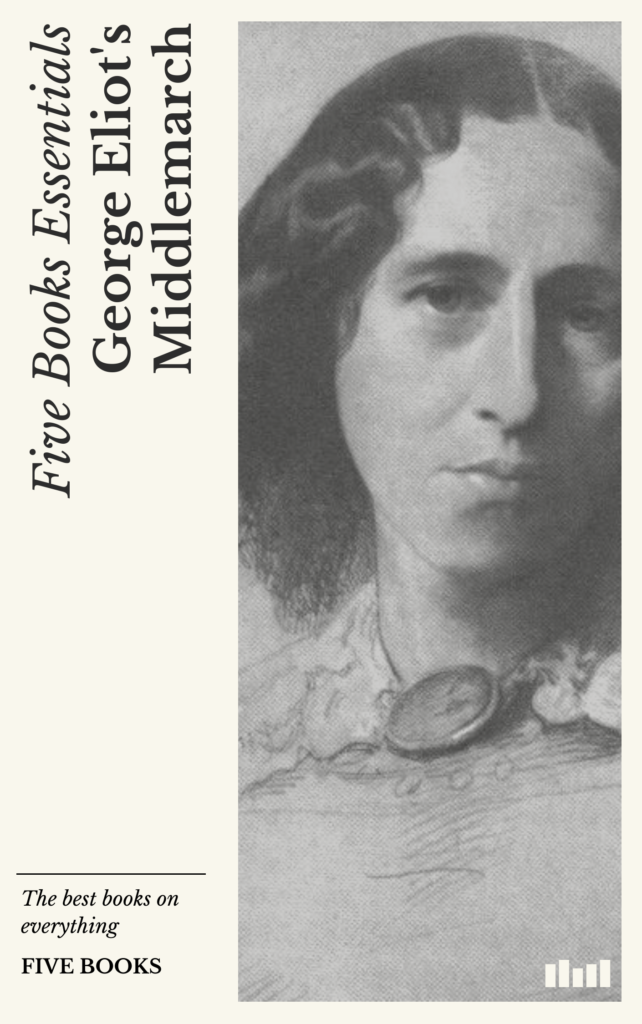English Novels
Tell me about Middlemarch, A Study in Provincial Life which is from 1874. What makes this a great novel?
It’s partly the sheer ambition of it. Eliot was absolutely determined to paint a serious, detailed picture of provincial life. The other radical thing was to do it from the point of view of a disappointed woman. Dorothea is a very enthralling portrait.
What else is Eliot trying to do? Is it a social critique? Was she trying to warn people not to marry the wrong person?
It’s not that explicit. It’s more about the choices that you might make as a woman—or indeed as a man.
Is it about what it is to be a good person?
Yes. That’s another element of the book, that it has a very strong moral core. This is why someone like F. R. Leavis chose it in The Great Tradition. That’s a new development. Until Eliot’s time, the primary consideration was to be entertaining. Virginia Woolf famously said Middlemarch was “one of the few English novels written for grown-up people.” I think that’s quite a good description actually. It’s also an amazing portrait of a moment, like a cathedral. It’s vast and seems to extend in every direction when you’re in it.
Let’s go on to book number 4 on your list: Huckleberry Finn. Now, this is your only choice from the United States.
Yes, I think we have to have it. Hemingway said that all American fiction comes from Huckleberry Finn. That’s true, in the sense that Twain invented a way of looking at the American experience and putting it into fiction. I think almost every American writer has to acknowledge that. He is for Americans as important as Chaucer might be for us. He’s a pioneer and shapes the terms of trade of American fiction writing for a long time. He was able to turn the American vernacular into literature.
Still, it does strike me as a bit of a caper or adventure story: camping in the woods, going on a raft down the river etc. Is that how you find it or not?
Well, it’s partly a sequel to Tom Sawyer which was a story for boys, so yes. But, at the same time, it’s also about race which is a very important question. It’s about the American frontier, which is also a very important: you can’t imagine a book like Kerouac’s On the Road or a lot of Hemingway without it. It’s a very important dimension in American life, the frontier, and Twain nails it completely.
For me, it’s very nice to read and it’s funny but it’s also a slice of history, an insight into that particular period before the Civil War. Was he an accurate portrayer of what the South was like? Is he describing his personal experience?
Yes, he’s drawing on his life on the Mississippi. If you read his Life on the Mississippi, you find a portrait of life on the river which feels like outtakes from the novel, in a way. Huckleberry Finn is written in at least two—if not three—parts and begins in fairly high spirits and gets darker and darker. It was written over quite a long period. Its darkness, in some ways, is quite unsatisfactory from a narrative point of view because it becomes very bleak. You talked about bleakness: he was very, very bleak.
And it’s always been controversial—even now.
Yes, in America there are periodic attempts to get it banned by various mad, bigoted high schools.


Comments
Post a Comment